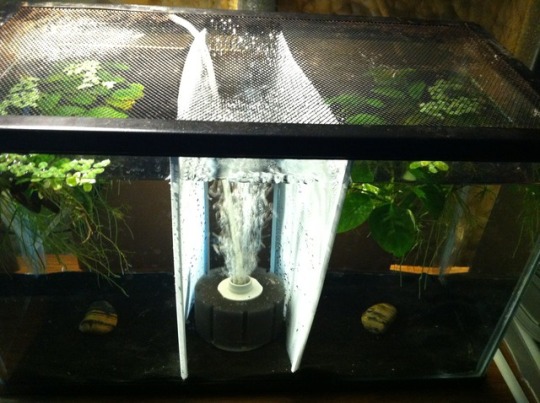Wow I reared a whopper in a much smaller tank of a goldfish, but had to rehouse in a larger tank a good few years ago though!
I’m confused!
When most of us here (all of us I believe) recommend tank sizes, we are thinking of what the fish will need at maturity. We are thinking of a fish's development which continues throughout its life, both externally (the physical size) and internal organ development--and unfortunately these two can proceed independently if something is wrong with the tank size or water quality or both, resulting in stunted fish. We are also thinking of the necessary numbers for fish that need a shoal or group. All of this determines the minimum tank size for the fish to be healthy and develop properly and live to its expected normal lifespan. And it is not our individual opinion; rather we use scientific evidence which is the most accurate data, available on reliable sites like Seriously Fish.
Fish that do not receive sufficient space right from day 1 will be more likely to have developmental issues that weaken its physiology, add stress that weakens the immune system, and inevitably result in a shorter lifespan even if the fish manages to avoid health issues that might well have killed it along the way.
It is quite possible to impair a fish's development early on simply by expecting it to manage in what the fish finds too small a space. This is why keeping potentially large fish in small tanks "as they grow a bit" is frowned upon by ichthyologists and responsible aquarists. This simply does not work well, if at all, ever.
A scientific study a few years ago was the first to document what many have said for decades about tank size and numbers. Fish in too small a space or in insufficient numbers had increased aggression; normally peaceful species like neon tetra became aggressive, while normally semi-aggressive species like angelfish became terrors. This is because the fish has no other means to "fight back," unless it just withdraws, gives up, and weakens rapidly. Only today I was reading an article in the New York Times setting out the thinking that fish can experience depression from their environment. This is something many guessed, and many scoffed at, but we are beginning to find out it is more true than not. And depression of course causes more stress, and stress is the direct cause of 95% of all fish disease.
The blue citation in my signature block is relevant here. As is Dr. Loiselle's in green for that matter.


